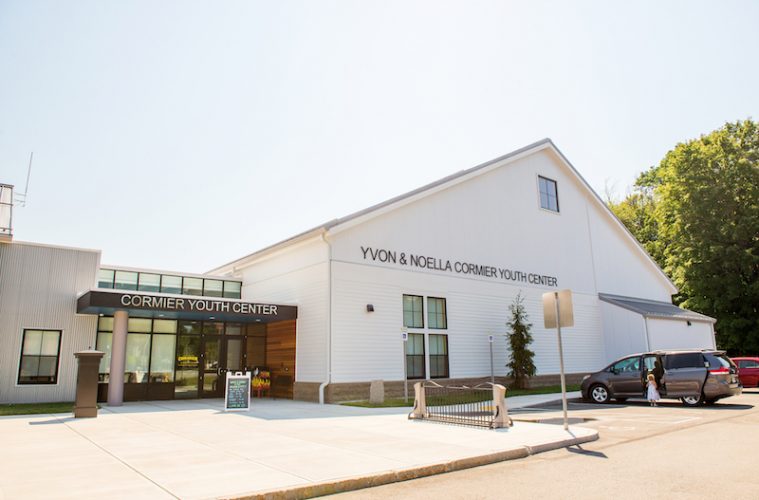Stephen Chinosi’s supervisor at one of his early teaching jobs didn’t seem to think very much of him. “I think I was given a warning on my evaluation that I was a ‘curriculum deviant,’” he says. He was considered insubordinate for challenging and veering from what he was supposed to be teaching and how he was supposed to be teaching it.
Now, deviating from the curriculum is in his job description.
The job title “director of strategic innovation” sounds like one you might find at an ambitious Silicon Valley startup or a cutting-edge biotech company. But in Andover, that title belongs to Chinosi, and the innovation he’s helping to direct is happening inside its public schools.
“Positions like this are really rare. Andover is way ahead of the curve in creating one,” he says.
Chinosi describes his role as being similar to that of a corporate ombudsman, acting as an advocate for employees, helping faculty members get great educational ideas off the ground, and improving and reinvigorating existing programs. Resource- or time-strapped teachers can go to Chinosi and say: “I have this idea. What do you think?” And he’ll work with them to create a program.
Within his first year in the position—he was hired in late spring 2015 after spending many years in a similar role in Newton—Chinosi has already been part of a number of successful projects. He says he is constantly being approached with new ideas or for help to take current programs to the next level.
“Even in that one year, that’s happening almost continuously,” he says. “Andover was already there in that sense…now they have a dedicated person to turn to whose sole role is that.” The goal is to empower students to be creative problem solvers, agents of their own learning, leaders, and innovators. “A new model for classrooms is to support every student as a leader and not a passenger.” he says.
That sentiment is echoed by Olinah Hassan, a 2016 Andover High School graduate who participated in one of the first iterations of the new Andover Innovation Lab, which allows students to develop their own tech-driven projects.
“He always told us as a teacher, his job was to guide, not to lead,” she says of Chinosi. Through this class—during which her team created their own version of the MIT Food Computer—Hassan says she built her confidence and emerged as a project manager and leader, something she was especially proud of as the only female in the class. She also brought the house down at MIT’s LINC 2016 Conference when she spoke about how students are able to take charge of their education via the Innovation Lab. Hassan’s talk so impressed attendees that Chinosi says many of them risked missing flights in order to talk with her afterward.
“I realized that my voice has worth as well…I was able to become this leader that I always dreamed of being but wasn’t able to in a more structured classroom setting,” Hassan says. “I think it really helped me to grow into a more confident and assertive person.”
Dr. Jorge Allen, coordinator for English language education and coordinator for world languages at Andover schools, along with guidance program advisor Aixa de Kelley, worked with Chinosi on creating an innovative new endorsement for global engagement, a multiyear high school program that involves course work, a portfolio project, service work, and overseas experience.
“As educators we’re focused on what happens in the classroom, the day-to-day teaching and learning process,” Allen says. “Having Steve’s role helps to kind of step back and see the big picture.”
That big picture includes more than good grades and standardized testing. Allen says that education needs to be relevant to the workplace, the economy, and the world community. He says Chinosi’s role helps teachers see and make those connections as they try to prepare students for an unknown and constantly changing future.
“Steve’s role helps us with being challenged intellectually as well as thinking about new ways to do what we do every day,” Allen says. “That position is helping us to change our mindset to be more flexible in our thinking and how we think about education.”
Throughout his first year on the job, Chinosi worked on many other programs with many other students and teachers, too. One project asked elementary school students to determine whether they’d be able to survive the Pilgrims’ first winter in Plymouth. They researched everything from the engineering behind Wampanoag and Pilgrim houses to the level of heat loss inside different buildings to the insulating qualities of skunk fur. Another project saw sixth graders not only reading the book The Boy Who Harnessed the Wind but also analyzing the text, engaging in a design unit on windmills, and pitching their design prototypes to their peers.
In each of these projects the kids are engaged and doing things beyond typical classroom learning.
As Chinosi says, “There’s a lot more at stake than test scores.”
![]()

